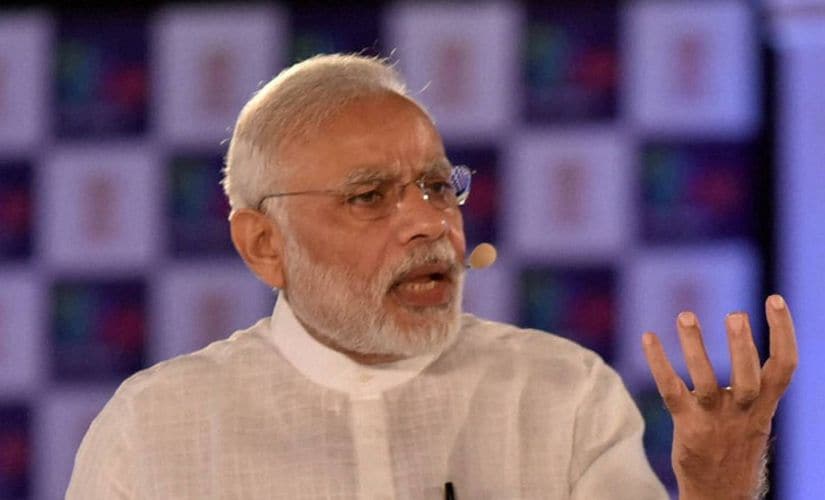In the early part of his tenure as Gujarat chief minister, one of the few things which Narendra Modi did to earn credibility as an administrator and restore normalcy in an otherwise highly vitiated communal atmosphere was to make sure that there was total peace during two social-religious celebrations: Bakri-Id and Rath Yatra. It didn’t matter to him whether the radical fringe drew their strength from organs of VHP or they acted on their own. They had to be contained and were contained. Once that was done effectively, year after year the two social celebrations of two different communities continued joyfully. After two years in office as Prime Minister, the challenge came from broadly the same quarters: Hindutva fringe anti-socials. This time around the scale was bigger, a north-India spread, with potential to create far bigger social tension than India had seen in the recent past – targeted not just against the Muslims but also the Dalits. To cover their criminal tracks, these criminals would flaunt Hindutva credentials and claim to be voters and supporters of Modi. [caption id=“attachment_2940416” align=“alignleft” width=“825”]  Narendra Modi at Saturday’s townhall. PTI[/caption] The Prime Minister’s silence (till two days back) on the issue was questioned, and rightly so. The situation was getting alarming by the day. The PM had to react, make his government and party’s position clear, and send a message to all concerned that this had to stop and criminals donning the guise of social servants will be dealt with strongly. He had to be seen as acting tough. Else, it would derail his government’s political, social and administrative agenda. It had already derailed his conscious and consistent Dalit outreach program and was costing his government and the BJP heavily. It was no mere coincidence that immediately after Modi came down heavily on anti-socials-turned-self-styled-Gaurakshaks for the second time on Sunday evening, the RSS’ second in command Bhaiyaji Joshi issued a statement. He broadly reiterated what the Prime Minister had said. Both talked tough and asked state governments to take severe action against criminals who masqueraded as cow protectors. The coordination between the two on the subject had to be reflected. They had collectively realised that this was the need of the hour for them. After Modi’s statement in New Delhi and Hyderabad, critics and political rivals pointed fingers, asking, ‘What about the RSS?’ After all, these goons flaunted a somewhat pervert Hindutva philosophy to carry on their task. The BJP and the RSS had to distance themselves from these anti-socials. Cow protection (gauraksha) had acquired a negative connotation and the RSS had to make its stand clear, lest the controversy impacted it and its organs genuine activities in cow protection. Joshi’s statement had a twofold aim to clear the RSS’ position and to appease Dalits in order to contain possibility of escalation of social conflict. “RSS appeals to all citizens that they should not link these condemnable efforts of a few opportunists with those devoted to the pious work of serving and protecting cows and expose them…We also request the state governments to take strict action against such elements and not let the good work of gau raksha and gau sewa get hampered,” he said. His statement, “Hit me, shoot me but spare my Dalit brethrens” was to given an emotive, even rhetorical pitch to the issue. After all, the issue was as much social and political as it was administrative. A rising mobilisation of the Dalit community and a slow build up of anger against BJP had the potential to unseat BJP in future elections. Modi had to do damage control. His party leaders are now confident that the erosion of faith of Dalits in BJP dispensation has been effectively halted and in due course further action on the subject by states would restore that confidence. These incidents had muddied BJP’s campaign among Dalits in Uttar Pradesh, which goes to the polls next year. Amit Shah had to cancel his public rally in Agra, which was specially aimed at catering to the marginalised sections of society. There was also a great deal of resentment among schedule caste MPs and other leaders from the community. Inclusion of Dalits in the larger Hindutava fold has for long been part of RSS philosophy of social engineering. Dalits were at the forefront even in Gujarat riots. That was the reason why the BJP had experimented with Bangaru Laxman as party president. It’s a different matter though that he couldn’t survive for long on the top post, thanks to a Tehelka sting. By picking up the issue twice in two days, in two public programmes and expressing his outrage on both occasions, he underlined his concerns. It’s true that law and order is a state subject and action has to be taken by the state government but as it has been seen in several cases, till the PM speaks on an issue, there is a certain confusion even among the BJP-ruled states as to how far they should go and what kind of action they should take. That’s the problem of a highly-centralised BJP dispensation, both as a party and as a government. Take for instance the Punjab government’s decision to file FIRs against gaurakshaks only on Monday even though everyone knew about their anti-social acts and the thugs had showed off their actions to TV cameras. Armed with lathis, rods and swords, they didn’t even pretend to be social service activists. The state administration acted only after the PM issued a clarion call against these thugs by calling them “nakli (fake)” gaurakshaks. And that is not healthy for the nation at large and the Indian federal structure.
The atrocities by gaurakshaks against Dalits had muddied BJP’s campaign among Dalits in Uttar Pradesh, which goes to the polls next year.
Advertisement
End of Article


)

)
)
)
)
)
)
)
)



